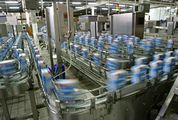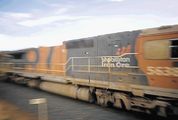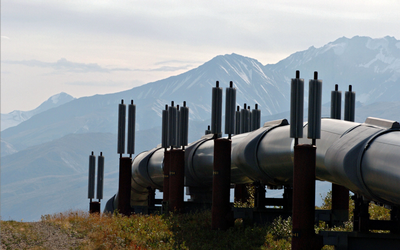THE near tripling of the cost of Transnet’s new multiproduct pipeline, which transports liquid fuel from Durban to Gauteng, will burden the public with additional increases in the price of fuel in Gauteng, analysts say.
The cost of the new pipeline, which has started operating, jumped to R29.5bn from an initial estimate of R11bn.
The National Energy Regulator of SA (Nersa), which regulates pipeline tariffs, has said it would claw back from future tariffs any assets imprudently acquired in the project.
Transnet applied for a 25.8% increase in allowable revenue for the 2016-17 financial year, which would result in a 21.3% tariff increase on the petroleum pipeline, a cost payable by all the major oil companies in SA. This would add 6.18c per litre to the fuel price in Gauteng as the oil companies pass through the effect of the higher tariff.
In 2013-14, Nersa granted Transnet a 6.4% tariff increase, which led to a 1.4c/litre rise in the fuel price.
Last year, Nersa approved a 6.9% increase in Transnet’s petroleum pipeline tariffs.
Transnet said its latest request for a hike was necessitated by the expected completion of construction work on significant aspects of the new multiproducts pipeline by November this year.
Last year, Nersa approved a 6.9% increase in Transnet’s petroleum pipeline tariffs for the 2015-16 financial year.
Nersa is continuing to investigate the project’s cost escalations. This "prudency review" was launched in 2013, when costs for the multiproduct pipeline project had escalated to R23.4bn and it was three years behind schedule.
Nersa said last week that the cost of the project was now set at R29.5bn, according to Transnet estimates.
It was likely the review would be finalised when the project was completed in 2019.
Costs would be clawed back only when the review was over. The regulator said it was required by the Petroleum Pipelines Act to allow only the cost of "prudently acquired" assets to be passed on to the public through higher tariffs.
The new 555km pipeline is set to replace a 48-year-old version and it has a 70-year design life.
It can transport 93-grade and 95-grade unleaded petrol as well as low-sulphur diesel, ultra-low-sulphur diesel and jet fuel.
Transnet has previously admitted to underestimating the complexity of the project. It said negotiating rights of passage with about 900 landowners was time consuming. The pipeline traversed about 500 wetlands.
Capacity utilisation averaged 115 megalitres in the 2014-15 financial period, exceeding expectations, according to Transnet.
"The cost and schedule of the entire project has been affected by various factors, including contractor performance, poor contract management, equipment failure, inclement weather and industrial action-related delays," said Transnet spokesman Mboniso Sigonyela.
University of Johannesburg department of transport and supply chain management head Jackie Walters said large projects had a tendency to "overshoot" their original budgets.
The weaker exchange rate could also have affected the cost of equipment and material.
However, Prof Walters said cost escalations on the project appeared to be "abnormal" and an investigation into the reasons for this needed to be completed soon.
He said an escalation in the price of fuel would lead to an increase in logistics costs as the cost of fuel was one of the highest individual items in the total cost of operations of freight and passenger vehicles.
"And (it) will burden the captive users at the end of the pipeline…. These users don’t really have a choice whether they use the services provided by the pipeline or not and are at the mercy of how the project is rolled out and managed by Transnet," said Prof Walters.
Transport economist Andrew Marsay said higher-than-expected pricing of the pipeline meant that not much liquid bulk traffic had been transferred from road to pipeline. He said Transnet should "make a big point" of the pipeline’s safety value.
"This could be a basis for offering concessionary or subsidised tariffs, based on the socioeconomic benefit of public safety," Mr Marsay said.





















Change: -0.01%
Change: -0.13%
Change: 0.07%
Change: -0.80%
Change: 1.98%
Data supplied by Profile Data
Change: -0.28%
Change: 0.27%
Change: -0.01%
Change: 0.00%
Change: 0.31%
Data supplied by Profile Data
Change: -0.15%
Change: -0.46%
Change: -0.22%
Change: -0.08%
Change: -0.22%
Data supplied by Profile Data
Change: -0.20%
Change: -0.49%
Change: 0.00%
Change: 0.00%
Change: -1.95%
Data supplied by Profile Data